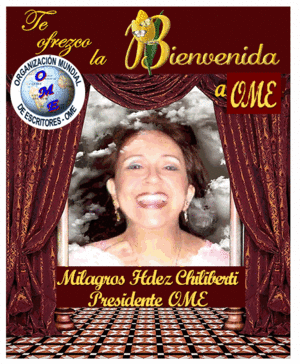- PORTADA
- PÁGINA PERSONAL
- MIEMBROS
- BLOGS
- FORO
- FOTOS
- VIDEOS
- GRUPOS
- LOSmásPOPULARES
- SONETOS
- JUEVES DE MUSA Y CANTO
- LITERATURA INFANTIL
- ERÓTICOS
- DUETOS Y MÁS
- CUMPLEAÑOS
- ARTES PLÁSTICAS
- ANTIPOEMAS
- CINE DE SIEMPRE
- POR LA PAZ
- ACRÓSTICOS Y CALIGRAMAS
- ANTOLOGÍA DE LA IMAGEN
- INTERCAMBIOS
- UNIVERSO HAIKU
- CARTAS DE AMOR
- FIESTA DEL AMOR
- LETRAS PARA MAMÁ
- LOS NIÑOS BENDITOS
- HOMENAJE AL POETA
- POESÍA A MADRE-TIERRA
- A LA MUJER
- POESÍA PARA TODOS
- TRADICIONES
- MITOS Y LEYENDAS
- CUENTOS NAVIDEÑOS
- CONCIENCIA SOCIAL
- TEATRO
- CIENCIA FICCIÓN
- EL PODER DE LA METÁFORA
- TANGOS Y MILONGAS
- MICROCUENTOS
- CHISTES Y CHIRIGOTAS
- ANTROPOLOGÍA-CIENCIA
- VENEZUELA
- EVENTOS
- BANCO DE IMÁGENES
- CHAT
- HAZ tu DONATIVO
Freud the unconscious 1915 pdf writer
FREUD THE UNCONSCIOUS 1915 PDF WRITER >> Read Online FREUD THE UNCONSCIOUS 1915 PDF WRITER
Notes 1. The present paper is a condensed presentation of ideas discussed much more fully in Freud's Philosophy of the Unconscious (Smith, in press). 2. Freud's term `mental apparatus' has a remarkably contemporary ring. Many contemporary cognitive scientists represent the mind as a virtual information processing machine. 3. Freud's theories include: Unconscious mind: This is one of his most enduring ideas, which is that the mind is a reservoir of thoughts, memories, and emotions that lie outside the awareness of the conscious mind. 2. Personality: Freud proposed that personality was made up of three key elements: the id, the ego, and the superego. Sigmund Freud emphasized the importance of the unconscious mind, and a primary assumption of Freudian theory is that the unconscious mind governs behavior to a greater degree than people suspect. Indeed, the goal of psychoanalysis is to make the unconscious conscious. Click to learn more about the unconscious mind. Secondly, the unconscious in the theoretical elaborations of Freud is developed. Finally, the different ways used by Freud to legitimate the unconscious mind in the psychoanalytical frame are exposed. Jokes and their Relation to the Unconscious (1905) Leonardo da Vinci and a Memory of His Childhood (1910) Group Psychology and the Analysis of the Ego (1921) Inhibitions, Symptoms and Anxiety (1934) An Outline of Psycho-Analysis (1938) Other Works Fragment of an Analysis of a Case of Hysteria (1905) ["Dora"] Five Lectures on Psychoanalysis Freud, S. (1915).A mythological parallel to a visual obsession., S.E., 14:337-338. Freud, S. (1915).Case of paranoia running counter to the psycho-analytic theory Sigmund Freud (May 6, 1856 - September 23, 1939; IPA pronunciation: [ˈziːkmʊnt ˈfrɔʏt]) was an Austrian neurologist and the co-founder of the psychoanalytic school of psychology. Freud is best known for his theories of the unconscious mind, especially involving the mechanism of repression; his redefinition of sexual desire as mobile and directed towards a wide variety of objects; and This paper aims at taking a fresh look at Freudian psychoanalytical theory from a modern perspective. Freudian psychology is a science based on the unconscious (id) and the conscious (ego). Various aspects of Freudian thinking are examined from a modern perspective and the relevance of the psychoanalytical theory of consciousness is projected. Freud's theory is not moral: "accepting reality" is not better than "repressing it". It's only the unpleasant symptoms of an unsuccessful repression that needs to be cured. Freud's theory appears almost utilitarian to me, that's why I like it. In defense of the Unconscious (1915) Latency = "psychic unconsciousness" Sigmund Freud's 1915 paper, The Unconscious, has been hailed as "one of Freud's more original contributions to general psychology" and "perhaps the most fundamental contribution Freud has made since The Interpretation of Dreams ." The most important thing that Freud does in this paper is to distinguish between the two - to present an unconscious that could properly be called 'Freudian', and to show us what is unique about it. 1. Justification for the Concept. Freud wants to detach the notion of what is mental from what is conscious, and attempts to justify the 1884 On Coca. 1891 On Aphasia. 1892 A Case of Successful Treatment by Hypnotism. 1893 Charcot. 1893 On the Psychical Mechanism of Hysterical Ph
Contenido principal
Grupos
Videos
-
22 de mayo de 2024
Agregado por Nilo 0 Comentarios 1 Me gusta
-
24 de mayo de 2024
Agregado por Nilo 0 Comentarios 1 Me gusta
© 2025 Creada por Aimee Granado Oreña-Creadora.
Con tecnología de
![]()
Insignias | Informar un problema | Política de privacidad | Términos de servicio

¡Tienes que ser miembro de ORGANIZACION MUNDIAL DE ESCRITORES. OME para agregar comentarios!
Únete a ORGANIZACION MUNDIAL DE ESCRITORES. OME